Can You Spot the Scam? Common Financial Fraud Warning Signs
Insights from experienced financial professionals.
Many people are familiar with the scammers who promise to pay millions of dollars in exchange for briefly holding funds in your bank account or those who offer to enhance certain body parts risk-free. Today's scammers are clever at making their offers seem legitimate. How can you spot scams before they happen? We discuss the five biggest red flags of a potential scam.
You've won a prize or a contest you never entered.
If you're informed you've won a contest or sweepstakes but have no memory of actually entering such a contest, it's likely a scam. Even if the "prize" exists and is legitimately being offered, it often comes at a cost—requiring you to sit through a day-long sales pitch or pay exorbitant travel costs, claim fees, or other expenses that essentially total the list price of the prize itself.
You're suddenly confronted with a request that can't wait.
Scam emails often contain some form of the phrase, "Urgent! Action needed!" Scammers rely on a sense of pressure or urgency to get you to perform tasks, click links, or otherwise agree to things you might have second thoughts about if given more time to think the matter over.
It may be tempting to take immediate action when you've been informed that your bank account or credit card was just locked. Take the extra time to go to your actual bank's website to confirm the message before navigating there through an outside email.
You're given money you didn't expect.
One common scam involves being asked to deposit a check and then return some portion of the funds to the giver. This may seem harmless—after all, you're getting money, not giving it. When these checks are fraudulent, you could be on the hook for overdraft and returned check fees if you wind up spending this money before the check is invalidated.
For example, someone trying to purchase an item you're selling online may ask you if they can send you twice the asking price, then have you refund them the balance. You may get the check, deposit it, and even see it in your "available balance," giving the transaction an extra air of legitimacy. In the meantime, the scammer takes the item they were planning to buy. But a week or two later, the check may be invalidated—leaving you short both the purchase price and the item itself.
You're asked about sensitive information over the phone.
Verifying your Social Security Number, bank account numbers, and other sensitive data over the phone may be risky. The IRS, for example, rarely initiates a phone call to you, especially without several prior communications in writing. Unless you've initiated the call yourself, to a number listed on the website, beware of disclosing sensitive personal and financial information over the phone.
You're presented with any offer that seems too good to be true.
As fun as it may be to daydream about winning the lottery or discovering you're the recipient of a long-lost relative's fortune, these sorts of events happen only to a select few—and with the lottery, require actually purchasing a ticket. Unfortunately, if an offer seems too good to be true, whether it's promising wealth, health, or effort-free weight loss, there's a good chance it's a scam.
Looking for assistance? We're here to help. Contact Us for general questions or Schedule an Appointment with a financial advisor.
LPL Tracking # 1-05187459
https://www.arborfcu.org/Learn/Education/Blog/March-2021-1/10-Warning-Signs-Its-Fraud
https://www.irs.gov/newsroom/how-to-know-its-really-the-irs-calling-or-knocking-on-your-door


